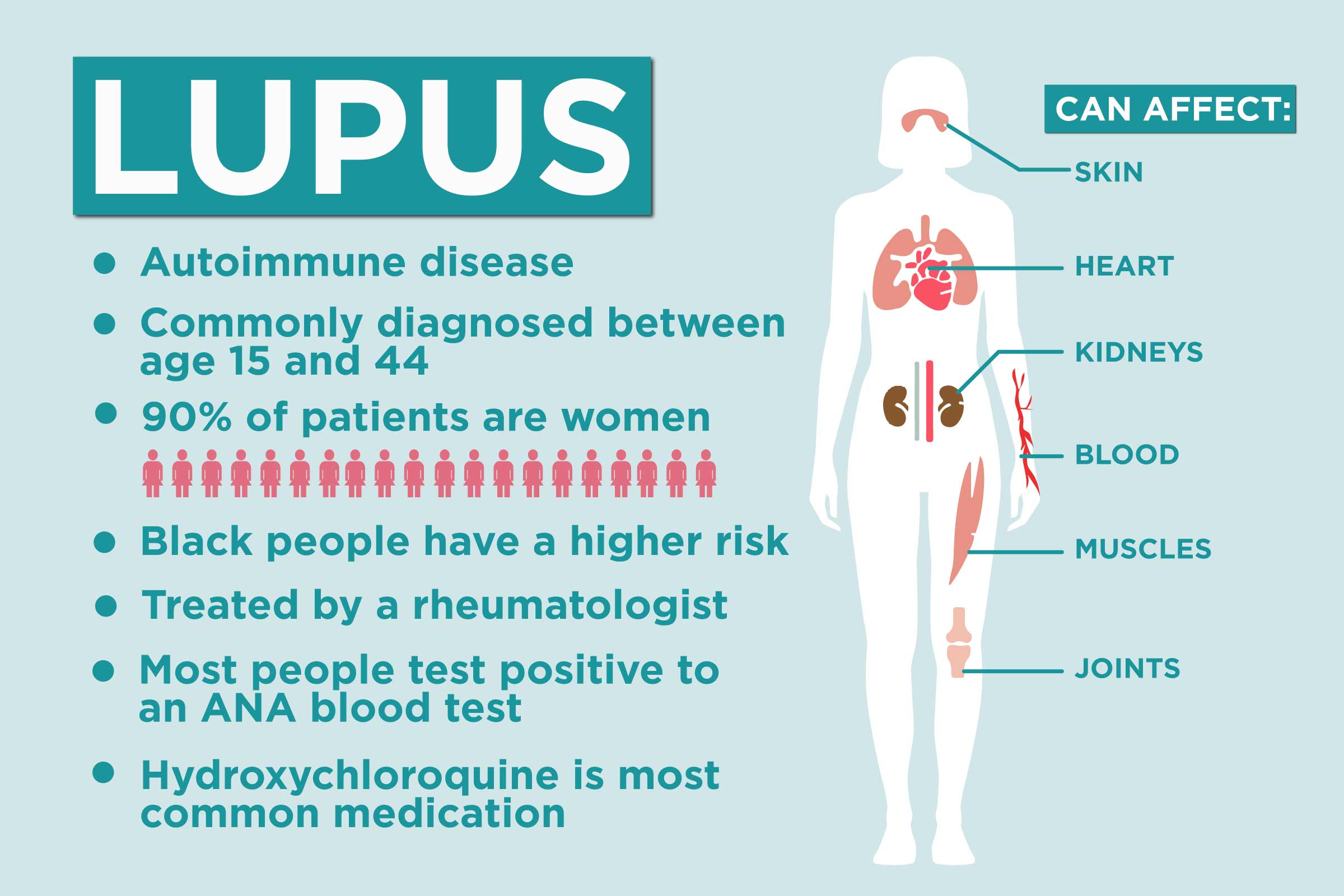Can lupus go away?

Are you born with lupus
The most distinctive sign of lupus — a facial rash that resembles the wings of a butterfly unfolding across both cheeks — occurs in many but not all cases of lupus. Some people are born with a tendency toward developing lupus, which may be triggered by infections, certain drugs or even sunlight.
What is the first stage of lupus
The first symptoms of lupus usually occur somewhere between the teen years and the 30s and may be mild, severe, sporadic, or continual. Common general symptoms include fatigue, fever, and hair loss. Lupus can also affect individual organs and body parts, such as the skin, kidneys, and joints.
Is lupus very painful
You may experience pain and stiffness, with or without swelling. This affects most people with lupus. Common areas for muscle pain and swelling include the neck, thighs, shoulders, and upper arms. Fever.
How common is lupus
About 1.5 million Americans have lupus, and there are an estimated 16,000 new cases each year. More than five million people worldwide have some form of the disease.
Is your life shorter with lupus
The prognosis of lupus is better today than ever before. With close follow-up and treatment, 80-90% of people with lupus can expect to live a normal life span. It is true that medical science has not yet developed a method for curing lupus, and some people do die from the disease.
How serious is lupus
The seriousness of SLE can range from mild to life-threatening. The disease should be treated by a doctor or a team of doctors who specialize in care of SLE patients. People with lupus that get proper medical care, preventive care, and education can significantly improve function and quality of life.
Can lupus be cured if caught early
Lupus is a chronic disease with no cure.
This means that you can manage it with treatment, but it will not go away. Treatment can help improve your symptoms, prevent flares, and prevent other health problems often caused by lupus.
Does lupus get worse with age
With age, symptom activity with lupus often declines, but symptoms you already have may grow more severe. The accumulation of damage over years may result in the need for joint replacements or other treatments.
Does lupus get better with age
Symptom Activity Tends to Improve with Age: As a person ages, lupus activity—or the degree of inflammation and autoimmune response present—typically declines. 9 This may lead to adjustments in treatment, which may include reducing the amount of medication you take.
Is lupus very rare
The most common type, systemic lupus erythematosus (SLE), affects about 200,000 US adults. Anyone can develop SLE, but it is more common in Black and Latina women and women of childbearing age (15–44 years). The causes of SLE are unknown but are thought to be related to genetic, environmental, and hormonal factors.
Can you have mild lupus forever
Lupus is different for every person. Some people's lupus symptoms don't ever fully go away, or they often have flares. Others will have flares every few years (or even less often) and their lupus will be inactive the rest of the time.
Can you live 50 years with lupus
With close follow-up and treatment, 80-90% of people with lupus can expect to live a normal life span.
How old do lupus patients live
For people with lupus, some treatments can increase the risk of developing potentially fatal infections. However, the majority of people with lupus can expect a normal or near-normal life expectancy. Research has shown that many people with a lupus diagnosis have been living with the disease for up to 40 years.
Has anyone ever beat lupus
Lupus is a chronic disease with no cure.
This means that you can manage it with treatment, but it will not go away. Treatment can help improve your symptoms, prevent flares, and prevent other health problems often caused by lupus. Your treatment will depend on your symptoms and needs.
Has anyone recovered from lupus
People with systemic lupus erythematosus may have periods of remission, when symptoms subside or go away completely. But there is no cure; it's a chronic condition, one that must be managed over the long term.
Why is lupus so bad
Lupus causes inflammation throughout the body, which can cause problems in organs, including: Kidney damage that can lead to changes in kidney function, including kidney failure. This is called lupus nephritis. Seizures and memory problems due to changes in the brain and central nervous system.
Can lupus get better over time
In some people, lupus will flare, become inactive (quiescent), and go into remission—this course of the disease may or may not occur regularly throughout their life. In other people, lupus will remain in a chronic (long-lasting) state of activity. Some people will have fairly frequent flares of illness.



